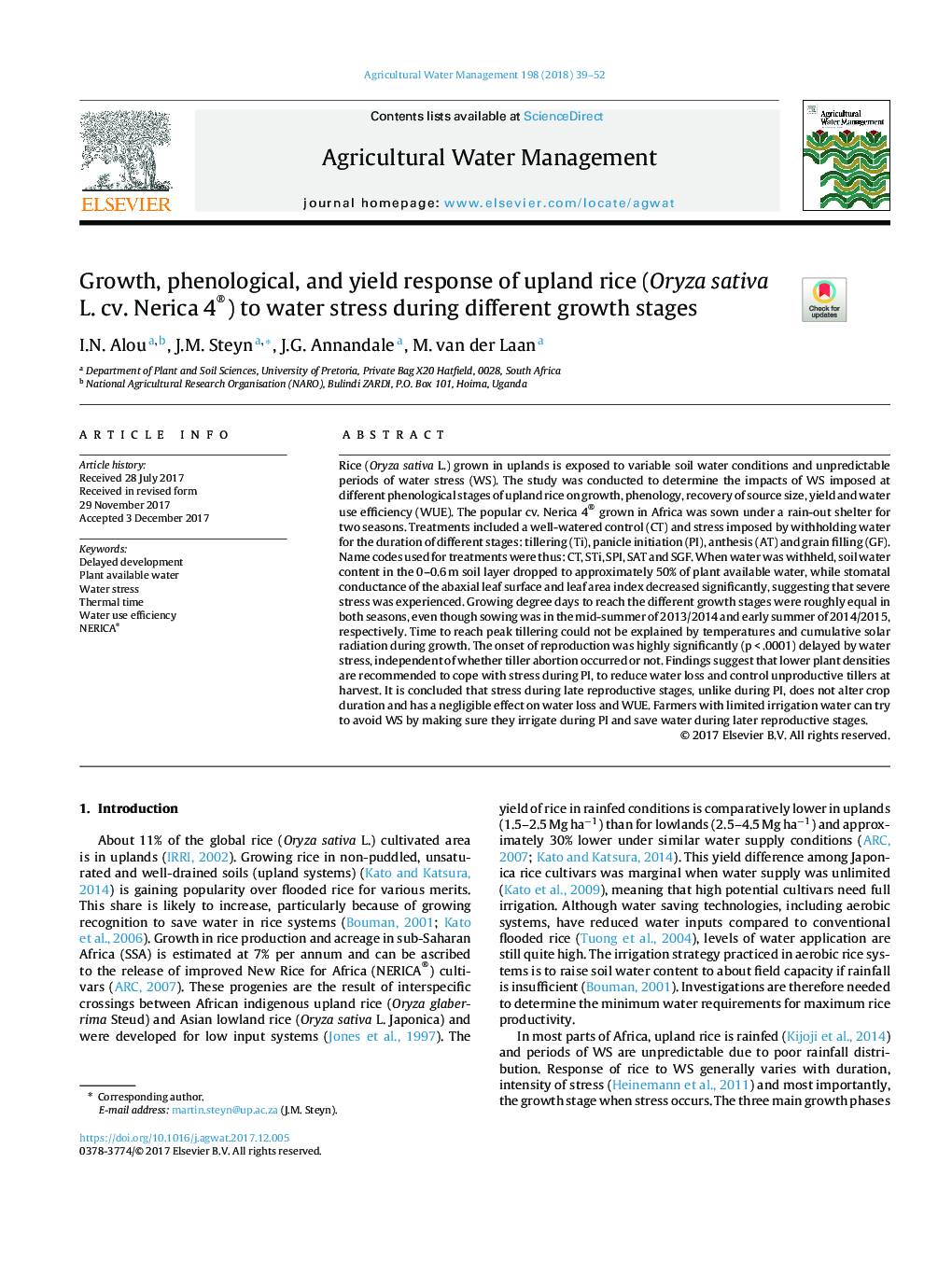| کد مقاله | کد نشریه | سال انتشار | مقاله انگلیسی | نسخه تمام متن |
|---|---|---|---|---|
| 8873147 | 1622882 | 2018 | 14 صفحه PDF | دانلود رایگان |
عنوان انگلیسی مقاله ISI
Growth, phenological, and yield response of upland rice (Oryza sativa L. cv. Nerica 4®) to water stress during different growth stages
دانلود مقاله + سفارش ترجمه
دانلود مقاله ISI انگلیسی
رایگان برای ایرانیان
کلمات کلیدی
موضوعات مرتبط
علوم زیستی و بیوفناوری
علوم کشاورزی و بیولوژیک
علوم زراعت و اصلاح نباتات
پیش نمایش صفحه اول مقاله

چکیده انگلیسی
Rice (Oryza sativa L.) grown in uplands is exposed to variable soil water conditions and unpredictable periods of water stress (WS). The study was conducted to determine the impacts of WS imposed at different phenological stages of upland rice on growth, phenology, recovery of source size, yield and water use efficiency (WUE). The popular cv. Nerica 4® grown in Africa was sown under a rain-out shelter for two seasons. Treatments included a well-watered control (CT) and stress imposed by withholding water for the duration of different stages: tillering (Ti), panicle initiation (PI), anthesis (AT) and grain filling (GF). Name codes used for treatments were thus: CT, STi, SPI, SAT and SGF. When water was withheld, soil water content in the 0-0.6â¯m soil layer dropped to approximately 50% of plant available water, while stomatal conductance of the abaxial leaf surface and leaf area index decreased significantly, suggesting that severe stress was experienced. Growing degree days to reach the different growth stages were roughly equal in both seasons, even though sowing was in the mid-summer of 2013/2014 and early summer of 2014/2015, respectively. Time to reach peak tillering could not be explained by temperatures and cumulative solar radiation during growth. The onset of reproduction was highly significantly (pâ¯<â¯.0001) delayed by water stress, independent of whether tiller abortion occurred or not. Findings suggest that lower plant densities are recommended to cope with stress during PI, to reduce water loss and control unproductive tillers at harvest. It is concluded that stress during late reproductive stages, unlike during PI, does not alter crop duration and has a negligible effect on water loss and WUE. Farmers with limited irrigation water can try to avoid WS by making sure they irrigate during PI and save water during later reproductive stages.
ناشر
Database: Elsevier - ScienceDirect (ساینس دایرکت)
Journal: Agricultural Water Management - Volume 198, 2 February 2018, Pages 39-52
Journal: Agricultural Water Management - Volume 198, 2 February 2018, Pages 39-52
نویسندگان
I.N. Alou, J.M. Steyn, J.G. Annandale, M. van der Laan,